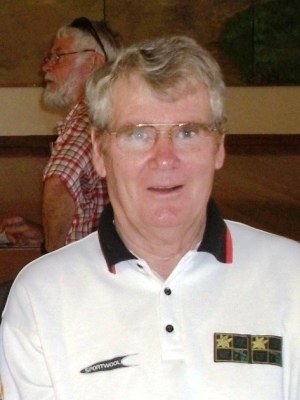The livestock carrying business appealed to me as a young person. It was at the height of livestock trading, which was going on from one end of the country to the other. It was nothing to ship 400 wethers from Dubbo to Benalla overnight and return the next day with a fresh load of dairy cattle for central Victoria.
These were heady days when everything was running according to plan. The business had the added appeal of being part of the historic folklore of drovers from byegone days. Payment was always on time provided a Registered Agent was used.
So on the surface of the proposition everything looked guaranteed. Clients that paid on time through a registered agent, continuous work in all seasons and suitable saleyards, loading ramps to transact business.
My advisor, Brian, having worked in the livestock/shipping industry for some years, outlined the shortcomings.
The romance of the industry as I saw it was the service and rewards of the industry, but some of my personal experiences helped confirm his comments and warnings.
One downside of the operation was that clientele expected or demanded that the livestock be loaded, including emptying out, in the shortest possible time.
Another downside was experienced in the 1980’s during my time working as a Sheep Exporter for the Kuwait Shipping and Trading Company. The length of fleece wool on merino sheep being exported had to be less than 75 mm. Sheep which exceeded the 75 mm had to be be drafted off, shorn and included in the shipping order of the day.
Shearing sheds and sheep yards could also be a problem. During the time I was employed by the Kuwait Shipping and Training Company also a member of the Victorian Wool Producing Training Committee. In this position I had access to thousands of sheep which I used to train shearers at Seven Creeks Run Euroa. Mind you, I did not do any of the Shearer Training, but I took the opportunity to train Shed Hands and Wool Handlers. Seven Creeks Run at that time took the form of a six stand shearing shed.
Our Farm Apprenticeship Group based at Technical School had built a portable set of circular sheep yards. These sheep yards, awarded First Prize for the Most Innovative Sheep Handling Equipment at the Royal Melbourne Show, worked quite well, although one of the Livestock Carriers thought they should have been relocated.
Dogs have not entered into the equation so far. Some dogs are good, but some dogs aren’t suited for the Trucking Business. The livestock carrier who doesn't pick the right dog is in strife for some time.
Cleaning out the truck is an unenviable task, especially in the spring when there is a fresh pick of cape weed.
Loading sheep into a livestock carrier in wet weather has to be experienced to be believed. So the negatives were adding up.
Other hazards of the job were that in heavy rain the carriers may get cut off.
So now when I see those big prime movers with four decks I am pleased I took Brian’s advice and left the trucks and the livestock carrying business to others more able to cope with the mentioned hazards!


 RSS Feed
RSS Feed
